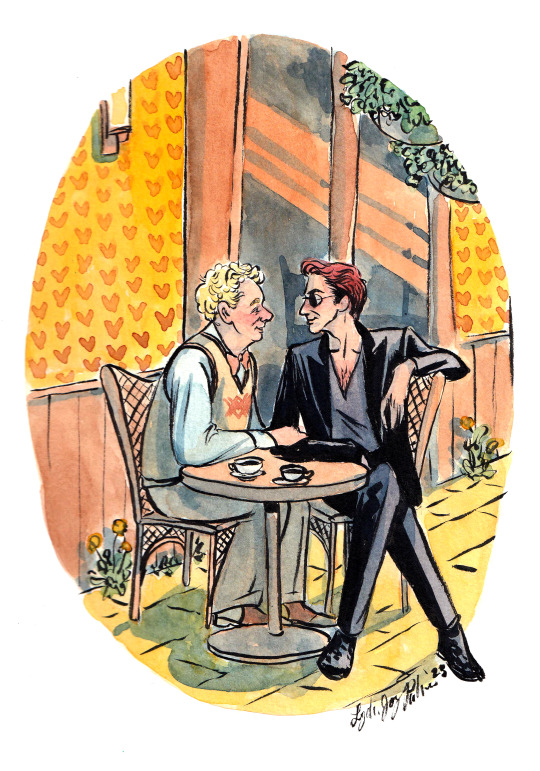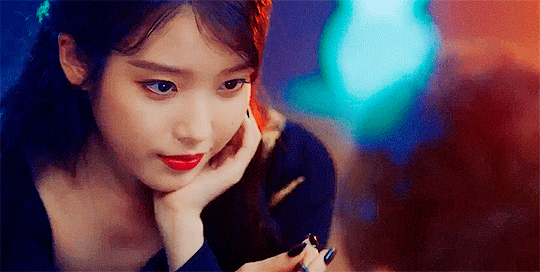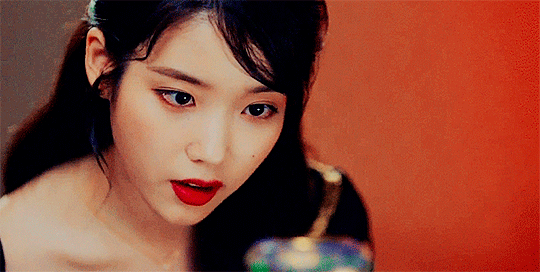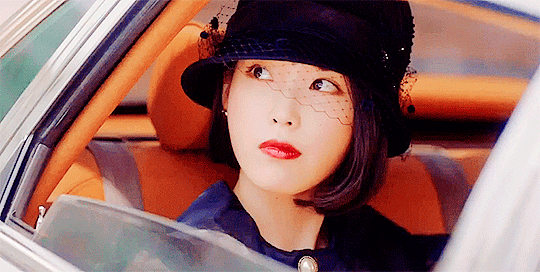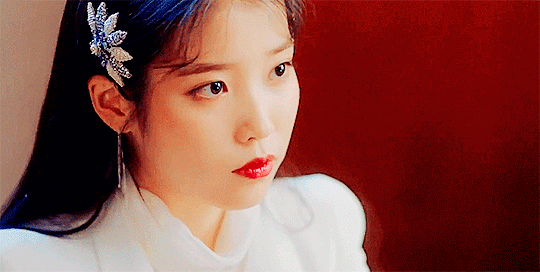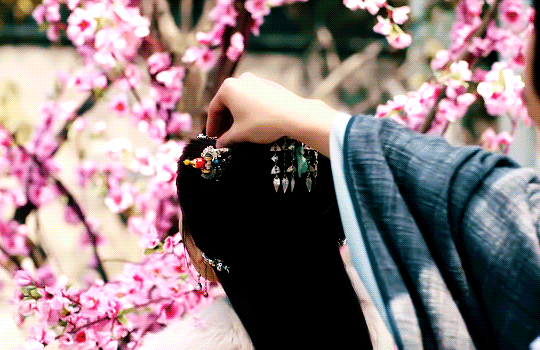Photo






Vincenzo
52 notes
·
View notes
Text
Jason: How come Timber's sugar baby is running around with a diamond studded leather jacket, when you wouldn't loan me money to take my girls out for dinner
Bruce: Because 'your girls' refers to every working girl between Park Row and The Narrows and I don't actually carry that much cash on me. Also Tim's not using my money
Jason: You wanna elaborate on that.
Bruce: Tim is independently wealthy, remember? He's emptied out one of his trusts and has invested it in various stocks. I might be the richest man on the continent-
Jason: Braggart
Bruce: Stating a fact. If Tim's projections are correct, then he'll be the second richest by this time next year. He did all that so that, and I quote, "Kon can have the best of anything he wants with no need for your input"
Tim from the other room: IT'S WHAT HE DESERVES BRUCE
Bruce 300% done: DO I DESERVE TO HAVE LUTHOR FOR AN IN-LAW
12K notes
·
View notes
Text
140K notes
·
View notes
Text
So you like imaginary fandoms...
With the recent success of Goncharov, I thought I'd make a post to mention some of the previous times this has happened in fandom, and a brief explanation and some links on how you can find works for them. I don't claim that this is a comprehensive list, it's just ones that came to me off the top of my head based on several decades of fandom involvement.
Ghost Soup Infidel Blue. Originates from the annual Yuletide exchange, specifically a post by liviapenn in 2007 that used it as a default fandom to help explain how to write 'dear author' letters. The relevant quote (meant to illustrate the kind of letter that would be too specific) was "'Bad: "I would like a Ghost Soup story where Luke makes out with Angela's clone and Angela gets mad and seduces Moira just to make Luke mad, and then Ryan and Luke duel to the death with their lightsabers and it ends up in an Angela/Angela's clone/Moira threesome. And Ryan feels really bad and flies off to Mars forever."" Consensus is that it is a sprawling space opera anime series, something like Gundam or Macross, with many sub-parts and spin-offs. Part of the dynamic of Ghost Soup 'fandom' is people arguing in the notes and comments about the continuity or quality of these various spinoffs (e.g. Purple is reputed to be bad, but some people will staunchly defend it just to be contrary.) Deliberate wank and badfic is part of the humour. You can read the Fanlore post about Ghost Soup here and find works for it and its related fandoms here
Winterblumensaat. Again, this comes out of Yuletide, specifically a nomination in 2021 for what was strongly suspected to be a nonexistent German book. The nominator's sister found it in a flea market! It very definitely was real! They couldn't provide any evidence or a photo of the book, but they promise it was definitely a real book! Despite being rejected from Yuletide nominations as not having any basis in reality, it has nevertheless had some fics written for it. The AO3 tag is merged into Original Work, so you can find them by searching in Original Work for Winterblumensaat (results here). It seems to be a moody, dark mid-century European novel, with characters named Florientina, Mailia, Schnail, and Markus. A related non-existent fandom with the same origin story is Nur die Sonne - Maria Moßer, but this has only attracted one work so far (a crossover with Winterblumensaat).
Cordelia (Movie Poster). In 2020 a movie poster for the movie Cordelia came out that inspired fandom in ways probably not intended by the movie's creators. While the actual movie Cordelia is a contemporary horror/thriller, the poster gave people the impression that it might be about Victorian femdom with pegging. Needless to say, they were disappointed by whatever was in the actual film, and made up fic based on what they thought the poster was about instead. Currently ALL works in the Cordelia (2020) tag on AO3 are actually about the poster and not the movie.
Invisible Ficathon. In 2014 an exchange called Invisible Ficathon ran, which was based around "stories that never were". Nominated "canons" had to be nonexistent fictional works referenced in another work. Examples given included "The Casebook of Sherlock Holmes - Joan Watson" (from Elementary), "The Itchy and Scratchy Show" (from The Simpsons), the books in Lucien's library in The Sandman that only exist in dreams, and so on. The collections on AO3 contain 71 works for nonexistent fandoms. Alas that this exchange only ran once, because it was a fun concept. I think with the renewed interest in Goncharov, it would be ripe for revival.
5K notes
·
View notes
Text
Dick’s early years as Robin are just. You are ten years old. Tomorrow you have a math test. Last night you saved ten lives. You could not save the two that mattered most. Neither could he, which is why you are here. A year ago you spent your days in a trailer and your nights beneath the big top, and you were never more than 10 feet away from someone who loved you. Now you are adrift in a mansion full of ghosts. You want to go home. You climb up to the highest attic and scream as loud as you can just to see if anyone will hear you. For the crime of losing your parents, they put you in a cell. At night you leap from skyscrapers and remember how to fly. You go to bed and watch them fall. Sometimes you wake up and you are so full of anger you don’t know how you can survive it. You are trying to survive it. You want to kill a man. You rescue a baby from a burning building and his mother calls you an angel. You eat an ice cream cone on top of a gargoyle. You do not want another father. You need a friend. There is a secret only four people in the whole world know. You are one of them.
15K notes
·
View notes
Link
Once again making a plug for the Anonymous collection on AO3. Don’t delete your work! Add it to the Anonymous collection, which will remove your name but allow you to retain control (still receive kudos and comments, still make edits or updates, etc.) No one will know the work is yours, even though it’s still yours.
Orphaning your work is an option, too, but the nice thing about the Anonymous collection (again), is that you get to retain control of your work!
Don’t delete! Make it anonymous!
9K notes
·
View notes
Text
Editing Tips for Beginning Editors
This is a guest post written by Adrian Harley.
Congratulations! If you’re reading this, I’m willing to bet you already have a lot of the skills you need to be an editor. Even among full-time professionals, a lot of editing skill comes from reading a ton—you get an “eye” for when a sentence just doesn’t look right. The more you read professionally edited work, the better you get at it. (Fanfiction is incredible, obviously. But fanfiction has its own quirks, and the grammar and punctuation can vary, so I’m not confident recommending it as a way to brush up your instinctive grasp of when a sentence “looks right.”)
The specifics of what you do as an editor can vary a lot depending on what you’re editing and who you’re editing for, so in this post, I’ll be covering some of the basic principles that I think will be helpful no matter what type of editing you do. Broadly, I’ll be going over language-related tips and profession-related tips.
Language
I won’t be going over the nuts and bolts of grammar here, as a zillion good guides to it already exist online. Grammar Girl is my go-to free resource, and a lot of grammar and punctuation questions can be easily answered online or in a style guide from your library. I looked up the rules for commas a LOT in my first years of editing, and I still have to double-check them sometimes. A lot of the fiddly details differ between guides (how to write a.m. and p.m.; serial comma), but the nuts and bolts of grammar and punctuation stay the same across guides.
Professionally, those fiddly details are a big chunk of editing. Do you write out numbers less than 20? Less than 10? Do you capitalize titles like “President” all the time or only in certain situations? There’s no one right answer, which is one of the many reasons there’s no “right guide” to editing. A style guide will decide many of these questions for you. If you pick up editing as a profession, your employer will most likely have a style guide in mind. You may want to pick one for yourself if you do freelance editing. That way, you won’t have to re-decide on every job, and if you get repeat clients, you’ll be sure their text is consistent across all their documents. A “series bible” for fiction works on similar principles.
Whether you’re looking at those fiddly details or at the big picture, one principle of editing is to never take anything for granted. Someone says there’s five ancient orbs needed to defeat the dragon? You’d better count the orbs. Make sure every proper noun in the story (names of people, places, things) is spelled the same every single time. This is the kind of thing you’ll get quizzed on if you ever apply for a professional editing gig. Every editing job I’ve ever applied to has an “editing test” of at least a page, and it usually has at least one of those errors (if not both).
Another major thing to watch out for is colloquialisms, especially ones that mean multiple things. A short list of common errors I see:
“Since” should only relate to the passage of time; it does not mean “because.”
“While,” again, should only refer to time—two things happening simultaneously. “But,” “although,” “whereas,” and others are good substitutes for the other sense.
“Due to” does not mean “because of,” it means “caused by” (and I’ve seen some editors argue to not even use it for “caused by” and to only use it for when something is owed to someone).
“If” will often need to be replaced with “whether.”
Obviously with dialogue, that’s a whole nother story, but be careful about these in narration, even with a colloquial narrative. They can introduce unintentional double meanings.
When you’re moving from basic accuracy to style, you’ll often need to “tighten up” the language. This might be something you’re used to doing in your own writing. This doesn’t mean all prose should be sparse! But as an editor, part of your job is making sure that every word is contributing something, no matter whether the sentence is flowery or stark. One exercise is to go through and see if you can cut one word from every sentence. Depending on what type of editing you do, you’ll have different “filler words” to look out for. My personal demon is “just,” so I always do a search for that when I’m revising my own work. In my day job, the word “provide” often signals a clunky phrase that could be condensed into a single, better verb (e.g., “provides assistance” vs. “helps”).
You’ll look for a lot as you edit, so don’t feel like you have to do it all at once. A simple search can make sure you’ve caught issues like “while” and “since.” Other issues are best solved in their own read-through. For me, I try to do a read-through specifically for passive voice. I often skip over passive voice on my all-purpose read because, well, the sentence makes sense, doesn’t it? So my eye simply doesn’t catch it if I’m not on the lookout. As you edit, you’ll figure out what process works best for you.
And to wrap up the language section—checklists are your friend! I used to have a post-it of all the things I knew I struggled with, and I’d systematically search the document for those trip-ups after I did my first read. You can customize your own checklist with whatever snags give you trouble.
Professionalism
A huge part of editing as a professional is in how you interact with other people. Your whole job is telling people they’re wrong, after all, and you often have no control over whether they’ll listen to you. Everything you can do to make the criticism easier for them helps!
My favorite “one weird trick” that my first boss taught me is to turn every criticism into a question. If you’re suggesting a significant revision, “How about…?” is one of my favorite leads. If you have no idea what’s going on, do your best to figure out what might be causing the issue, then form a question around that. “Are there missing words here?” is kinder and more useful than “Huh?”
Essentially, your role as an editor is to advocate for the reader. This “reader stand-in” role can help frame critique as well. Will the reader understand this? If you’re in one of the more-technical editing jobs, that question may be completely necessary. As an editor for scientific research, I’m often editing documents meant for people who know way more about the subject matter than I do. The framing of “the reader” is also a useful tool in your toolbox for fiction. You may be editing something that you are not the target audience for. Or, on the other end of the scale, you may know without question that you’re reading something incomprehensible. The polite device of “the reader” helps add a level of depersonalization to the critique.
Unsurprisingly, for editing, communication is key before you even start work. “Editing” covers a huge range of possibilities. Make sure you and the author are on the same page. Do they want a proofread—only correcting glaring errors? Do they want you to improve the phrasing of sentences? It can go all the way up to practically rewriting the thing, if you’re working at a corporation and the authors aren’t professionals. This conversation beforehand will let you know whether you should make “artistic” suggestions as you read, whether you need to stick with nuts and bolts, or something in between.
If the author says they only need a proofread and you discover the whole thing is terrible, that’s when some tactful emails come into play. Never start doing a higher-level edit unless you’ve talked about it with the author first. You have much better odds of an affirmative if they feel like they’re collaborating with you–that you’re both in it together to make the best document possible. As far as the tactful emails go, be kind and be specific. If you have examples of what you’d like to correct, throw those in. It helps the author know what to expect and make an informed decision.
And sometimes the author says no, and that’s okay! You must wash your hands of it. It’s not your name on the thing, and if you don’t put it in your resume, it never will be (fresh out of college, I worked on a couple truly awful novels that nobody will ever know I worked on). Perfectionism is HARD to overcome, I know, but accepting the errors gets easier with practice.
And finally, if you’re still wondering, “Am I cut out to be an editor?” I would recommend the words of Neil Gaiman. In his excellent “Make Good Art” speech, he says that as a freelance artist, you need to do good work, do it on time, and be pleasant to work with. And then, he adds, “You don’t even need all three! Two out of three is fine.”I recommend the whole thing if you ever want to battle imposter syndrome, because the same tenets apply to editing. At least I think they do. You don’t need to be the perfect editor—nobody is. But I guarantee that you have most of what you need already, and I hope this has helped.
Biography
Adrian Harley, one of Duck Prints Press’s editors, has been a full-time professional editor of scientific research for 10 years. Their freelance and ad-hoc editing has run the gamut from books to blog posts to family members’ cover letters. They’ve been published in Duck Prints Press’ And Seek (Not) to Alter Me and the forthcoming She Wears the Midnight Crown, as well as OFIC Magazine.
Want to learn more?
Beware the Weasel Word has information and resources for “tightening up” language.
How to Ask for Feedback on Your Writing talks more about how, from a writer point of view, to help your editor understand what type(s) of editing you’re looking for.
Giving Quality, Motivating Feedback focuses on exactly what it says on the tin: how to give a writer feedback they’ll listen to.
What is an Alpha Reader? talks about what role alpha reader editors play and how to work with one.
232 notes
·
View notes
Photo



What’s going on with you two? When did you become best friends that cause trouble together? “Best friends”? I witnessed a violation of the law. I was just doing my duty. Duty, my ass. Right. You weren’t doing your duty. Officer Han, we weren’t there on official business. I see. Is that it?
516 notes
·
View notes
Photo



smol and sappy sketches, vol 1
i have too many things to draw so here is quick doodle vomit to relieve my physical need to see them being soft ;;;;
1K notes
·
View notes
Text
I think one of the things that makes OFMD feel freshest is how it balances being a romantic comedy and being queer - specifically, a romantic comedy about queer men (& Jim). Queer men are not unknown in the romantic comedy genre! But what makes the show stand out is how exceptionally careful it is to ensure that the fact of their romances, and of their queerness, is never the source of the comedy. It’s never meant to be funny that someone is queer, or that someone is in love. Coming out, even in the most casual and incidental way, is never used as a punchline.
And yet, it’s also not a utopia where stereotypes about queer people and homophobia (the things that ultimately fuel those kinds of jokes) don’t exist - they do! But every time somebody tries to make them funny, it falls completely flat. It steps outside the acceptable bounds of the genre and the characters react to it in that way. Homophobia isn’t a central obstacle, it’s a faux pas. It’s not allowed to be funny and it’s also not allowed to take up space in the narrative by being the thing the characters must overcome to get their happy ending. Which is a hell of a balancing act.
That scene with Izzy trying to mock Black Pete and Lucius is absolutely crucial to this tone. These characters know they’re in a comedy and they react to things like they’re in a comedy, but they don’t react to his mockery like it’s a joke OR like it has power to shame them. They react like Izzy is embarrassing himself by failing to read the room - like he’s a bully, but a pathetic one. You can be evil in comedies and still be funny, but Izzy is committing the cardinal sin of failing to be funny…and what that does is draw very clear boundaries around what the show is going to allow as a legitimate joke. Homophobic jokes can only be funny when the people making them have consensus from the rest of the group that they’re funny. Instead, in this show, it is clear instead that they are acts of violence and (attempted) control. Which defangs them, because the ultimate power in a romantic comedy always comes from acts of comedy. I find it extremely powerful for a queer romcom to look homophobia in the eye like this and say “nah” than either to ignore it completely, or to make it a central problem.
It’s very very smart writing and acting and it should be cited every time someone tries to whine about comedy and boundaries and not being allowed to be homophobic/transphobic any more. You can be extraordinarily funny about queer people and be received well. Queerness just can’t be the punchline.
11K notes
·
View notes
Text

Drawing of Blackbeard from Our Flag Means Death.
1K notes
·
View notes

